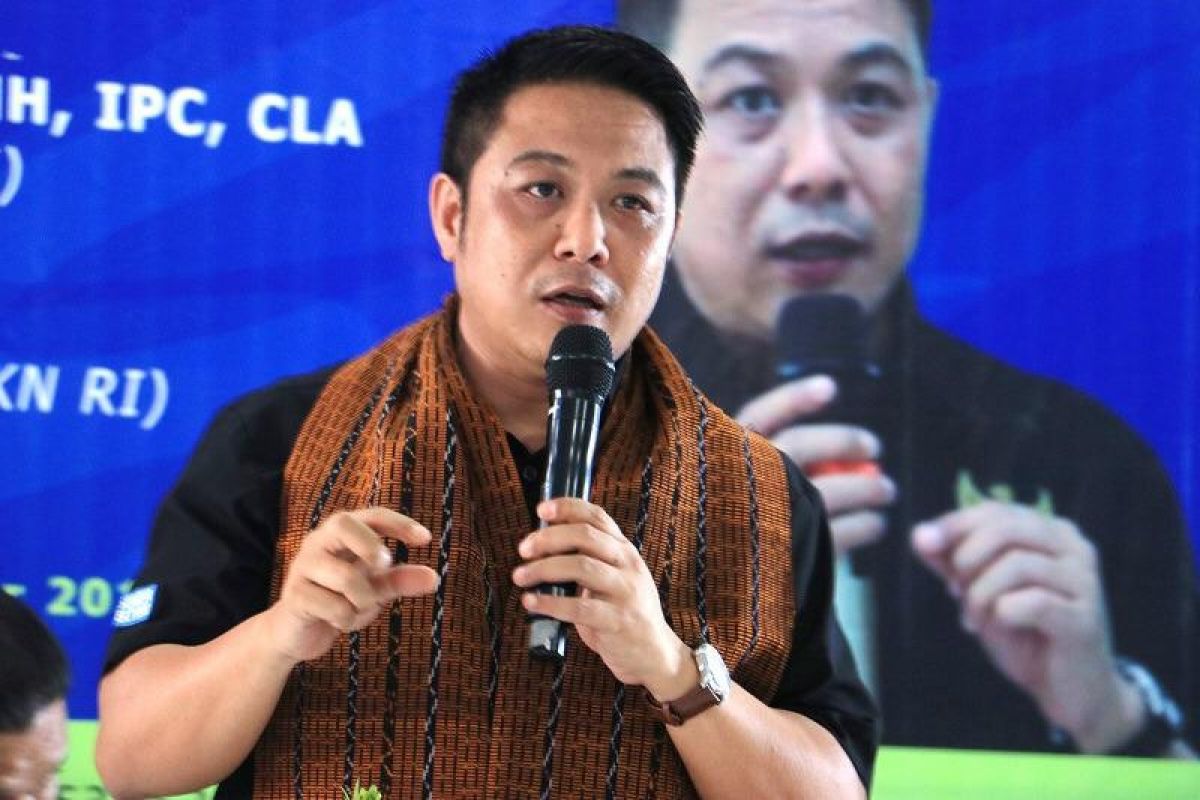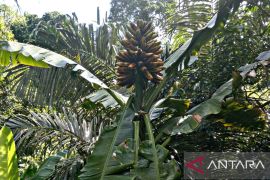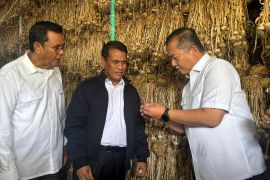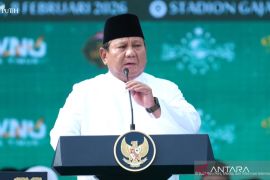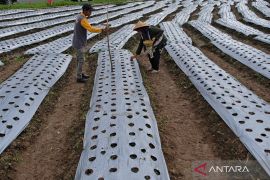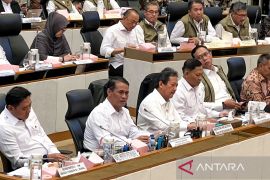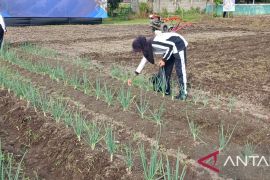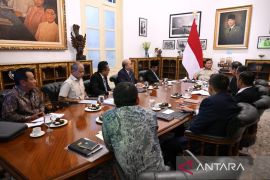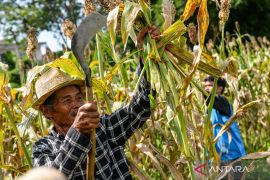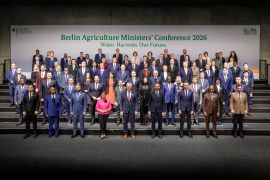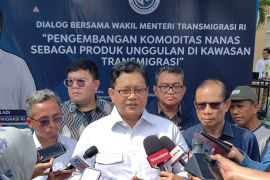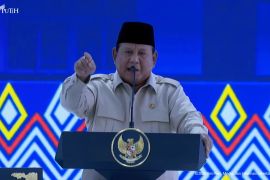"Food remains a chronic problem in certain time due to the fact that our national food management is not yet good," said Rizal E Halim, an economist of the University of Indonesia's Faculty of Economics and Business, here Sunday.
The food-related issues should be resolved by achieving the mandated food security goal, and improving the integration of food management because the food problems are not just handled by the ministry of agriculture but also by other ministries and agencies.
Halim argued that Indonesia's food management still faces such challenges as the national food supplies that remain dominated by imported products; unresolved rent seeking activities; and lack of uses of food technology and innovation.
Related news: Ministry to augment swampland food production during dry season
Related news: BPOM strives to ensure food security during COVID-19 pandemic
The Indonesian Government is indeed aware of the importance of improving the nation's food security amid this ongoing global pandemic of novel coronavirus disease (COVID-19) and beyond.
On April 21, 2020, President Joko Widodo (Jokowi) had asked officials to ensure that their assessment of Indonesia's rice stocks was accurate.
The President's directive came on the back of a warning issued by the Food and Agriculture Organization (FAO) of the United Nations, which had predicted the COVID-19 pandemic could trigger a global food crisis.
"Make sure that our rice stocks are sufficient. Please, calculate them accurately. Also, make a precise prediction of our rice production as we are entering the dry season. How long will our national rice reserves last?" he told a video conference recently.
President Jokowi requested the authorities to calculate the national rice stocks by referring to valid and reliable empirical data.
He also reiterated FAO's warning that the current coronavirus pandemic could trigger a food shortage across the world.
Indonesia needs to be cautious because all countries, including rice producers, would prioritize their domestic needs, he said, adding that the imposition of a lockdown could affect the staple food supply chain.
In connection with the impact of COVID-19 on global food security, the Food and Agriculture Organization had earlier warned of a looming food crisis.
However, this worst-case scenario could be avoided if "measures are taken fast to protect the most vulnerable, keep global food supply chains alive, and mitigate the pandemic's impacts across the food system", according to the FAO.
The FAO, on its official website, expressed the opinion that "border closures, quarantines, and market, supply chain, and trade disruptions could restrict people's access to sufficient/diverse and nutritious sources of food".
Related news: Jokowi upbeat about Kamijoro Dam improving food security
Related news: Indonesia braces for extreme dry season amid COVID-19
Translator: Feru L, Rahmad Nasution
Editor: Sri Haryati
Copyright © ANTARA 2020
